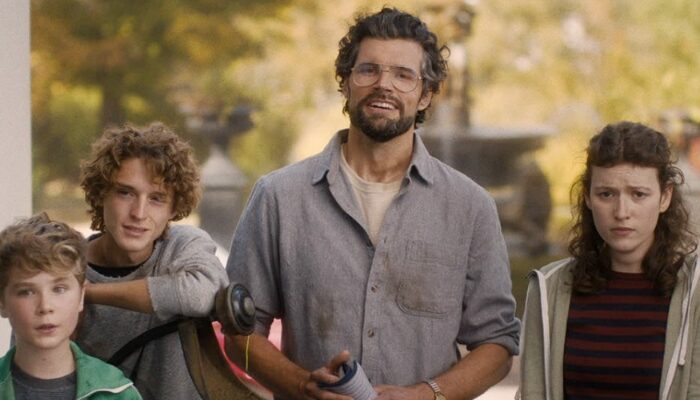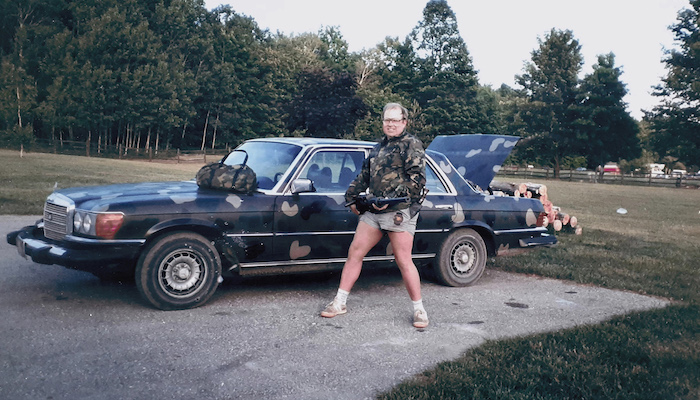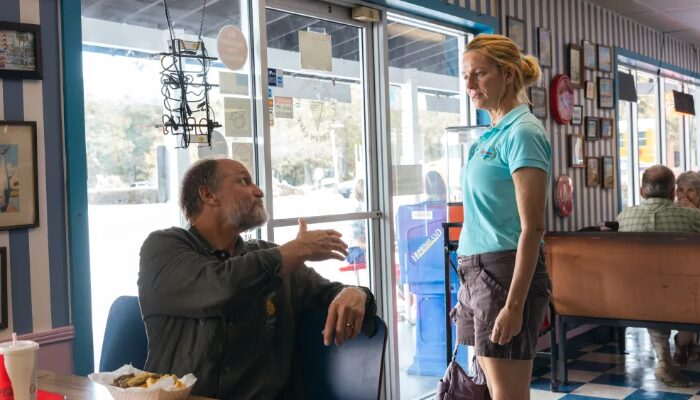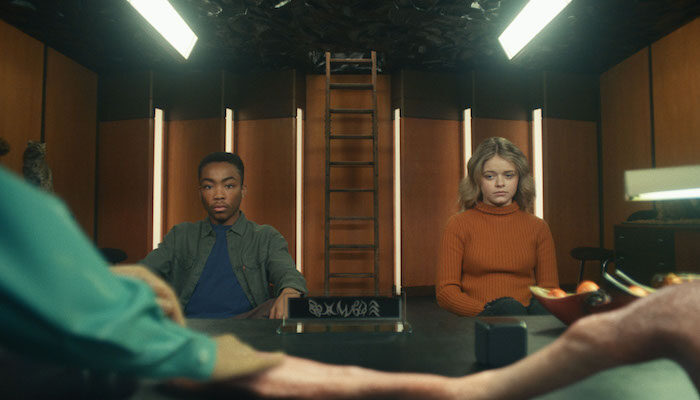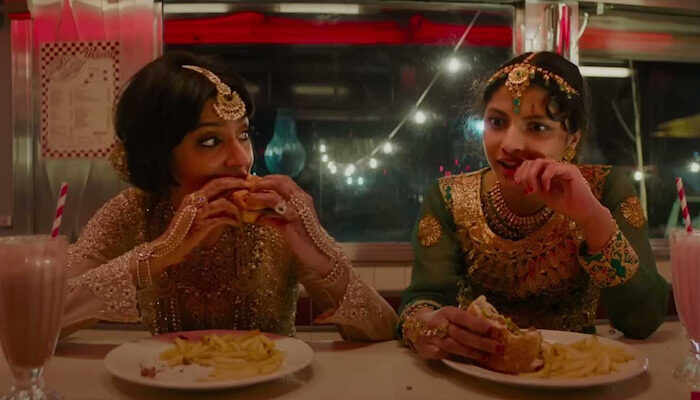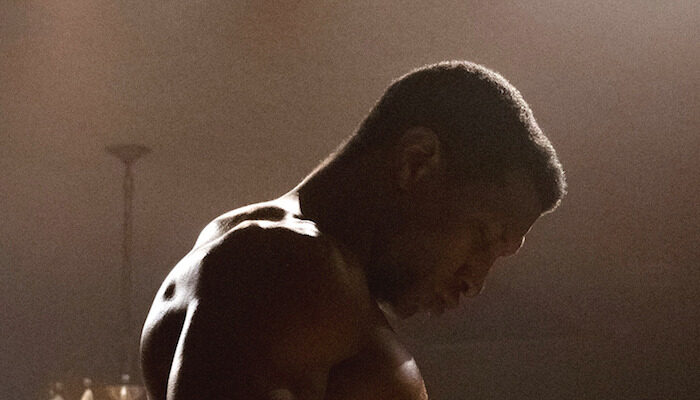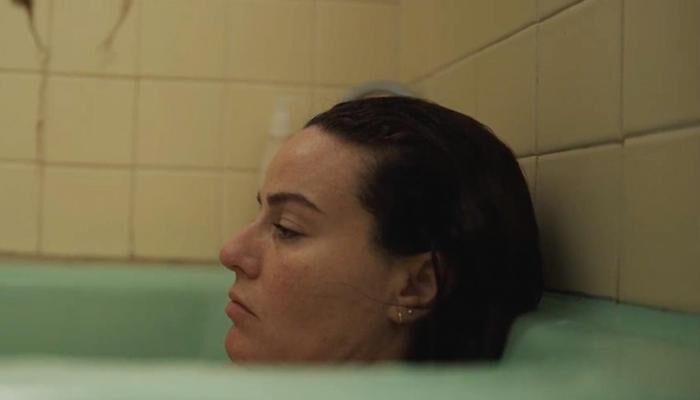Film Review: 2ND CHANCE: The Contradictions of the American Psyche By Way of a Midwestern Armor Dealer [Sundance 2022]
2nd Chance Review
2nd Chance (2022) Film Review from the 45th Annual Sundance Film Festival, a documentary written and directed by Ramin Bahrani, featuring Richard Davis.
2nd Chance opens with (and continues to fall back on) its selling point of bulletproof vest manufacturer Richard Davis being the only man in the history of the world to have shot himself 192 times. It asserts that claim with so many videotaped examples that we’ve run out of fingers and toes on which to count, so we’re all inclined to believe it. It’s that bizarre hook which first-time feature-length documentarian Ramin Bahrani uses to drag us straight down the rabbit hole of America’s obsessive entanglement of business and violence, with the corrosively charismatic Davis at the helm.
Before he was a nefarious armor manufacturer, Davis owned a small pizza joint on the outskirts of Detroit in the early 1970s. However, an alleged back-alley shootout that occurred during a pizza delivery would serve as the inspiration for his next business venture: creating more versatile body armor to protect police and military personnel. Davis originally made his nylon vests with material that he and his family could scrounge up (one of his interviewed ex-wives said the straps on an early iteration of the vest were made with the seatbelts from one of their cars) before testing them out – which, of course, meant shooting himself with the vest on at point-blank range. In each of these videotaped skirtings with death Davis is noticeably nervous and shaky, but he also sees the task through with a despondent matter-of-fact attitude (talk about committing to the bit).
After his initial tests and sales to random precincts throughout the country, Davis’ company (named Second Chance) explodes with thousands of orders, prompting its move from a side-hustle to a full-blown industry that takes over the economy of a small Detroit suburb. Davis coasts on the success of his new business, wooing both the townspeople and police officers the country over through continuously sustained employment and a firebrand personality. The downside of it is its whole ugly underbelly: maintenance of good publicity through coercion, litigation, and the overbearing cloud of state-sanctioned violence. Not to mention the unchecked growth of a company that became too big for its own britches and started cutting corners that saved more cash but less human lives.
Bahrani says he was drawn to Davis’ story due to the man’s numerous contradictions, which he sees as a symbolic stand-in for America’s own disjointed national identity. While Davis seems to genuinely care about the safety of police and military personnel from an individualist and humanist perspective, it’s fueled by a vague sense of danger committed by the nebulous “other”. His intentions, good as they may be, are tinged with a deep-seeded paranoia of xenophobic and proto-fascist leanings. Bahrani doesn’t attempt any reconciliation of Davis’ contradictions nor those of his associates, but simply lays them all out for rightfully blatant scrutinization.
On a more basic level, the irony of a man who creates armor to protect people from violence but is rampantly obsessed with perpetuating it is not lost on Bahrani … or even Davis, for that matter. Davis waxes philosophically about a push-pull competition between weapons and arms dealers that’s been going on for “millions of years”, seeing his and Second Chance’s existence in that schematic as just the necessary fulfillment of a role. Meanwhile, Bahrani counteracts that with a flood of home footage from the gun shows and various detonations that Davis held on his rural Michigan property, wherein he bathes in the visceral reaction of perpetuated destruction and the attention that garners. Whole swathes of the runtime are also dedicated to showcasing Second Chance’s filmed promotional videos that feature manufactured boogeymen like gun-toting communist hippies and re-enactments of “real” moments where the company’s body armor allegedly saved people’s lives (the key word “allegedly” being used again here, as Bahrani is quick to point out the numerous inconsistencies and stretched truths that exist within Davis’ persona).
It might be tempting to read Bahrani’s presentation of this story as non-judgmental or lacking in moral conviction, but to do that would ignore the intellectual effort that he’s asking us viewers to do on our part. Rather than condemnation of a single entity (which I’d argue he still does, as Davis is never made out to be politically righteous nor ethically sound) Bahrani diverts our attention to the uncomfortable truth of humans being capable of harboring conflicting ideologies simultaneously. The desire for safety coexisting along the desire to hurt and destroy, or the want for financial success pulling one away from their original goals … these are all paradoxes that have, do, and will continue to exist, and 2nd Chance is simply fascinated with that psychological imperfection.
The added angle of Davis’ journey as a typical example of someone chasing the American Dream conjures up further awareness of this incongruity as it relates to American identity. White men like Davis – and by extension, systems of policing and the military industrial complex – have a lot of nerve worrying about safety and violence when they’re living on occupied land obtained through genocide and invasion. What’s more, it’s an example of how the “Manifest Destiny” mantra poisons even the smallest crevasses of American life, inflating every businessman’s ego to grandiose proportion that require maintenance through economic and cultural gaslighting (hell, a whole chapter of the doc is dedicated to Davis’ coercion and alleged threatening of a teenager to take the fall for one of his own dangerous stunts!). To see former officers and Second Chance employees step back from the whole enterprise and reckon with the regret they have over their role in it, and the manipulation that they endured due to Davis’ firebrand personality, is a refreshing foil to Davis’ own gung-ho self-assurance.
And on that note, 2nd Chance is an enrapturing watch simply because of its incredulous central character. Despite his penchant for tall tales and a bending of the truth, Davis is entertaining due to his sheer abundance of confidence and his recognizable Midwestern twang. His spitfire recollections definitely aid in the film’s rapid sense of pacing.
2nd Chance is a rise-and-fall tale of American success and tragedy, a complex look at how violent cycles are operating at all levels of visibility throughout the country to maintain profit and power. It’s quite a reckoning, and Bahrani manages that in lively and frustrating measures.
Rating: 8/10
Leave your thoughts on this 2nd Chance review and the film below in the comments section. Readers seeking to support this type of content can visit our Patreon Page and become one of FilmBook’s patrons. Readers seeking more Sundance Film Festival news can visit our Sundance Film Festival Page, our Film Festival Page, and our Film Festival Facebook Page. Readers seeking more film reviews can visit our Movie Review Page, our Movie Review Twitter Page, and our Movie Review Facebook Page. Want up-to-the-minute notifications? FilmBook staff members publish articles by Email, Twitter, Facebook, Instagram, Tumblr, Pinterest, Reddit, and Flipboard.
Related Articles
FilmBook's Newsletter
Subscribe to FilmBook’s Daily Newsletter for the latest news!

